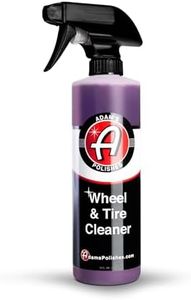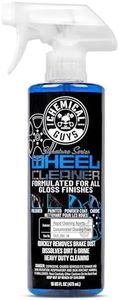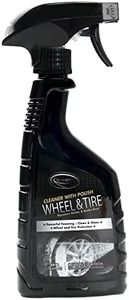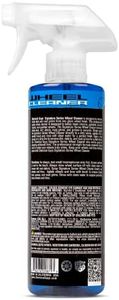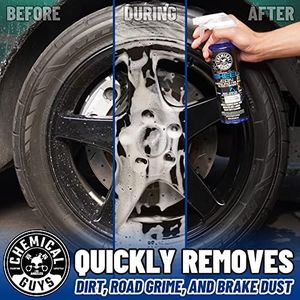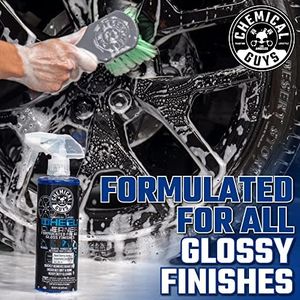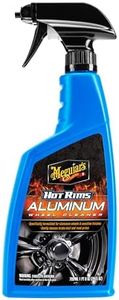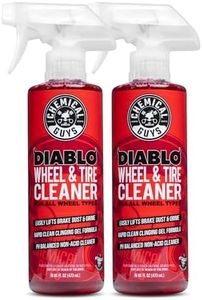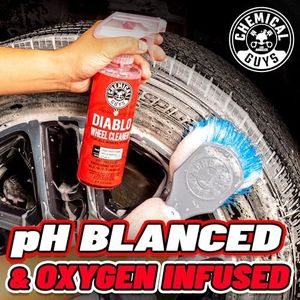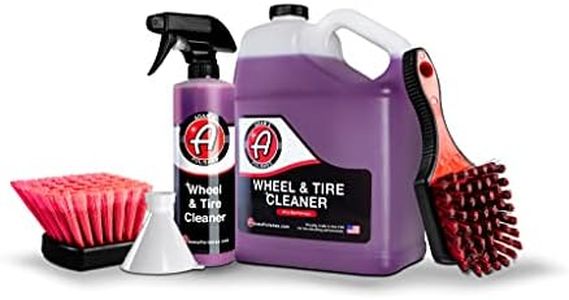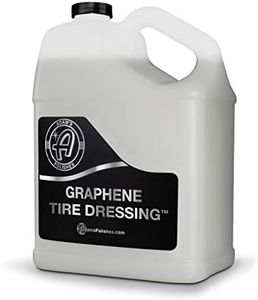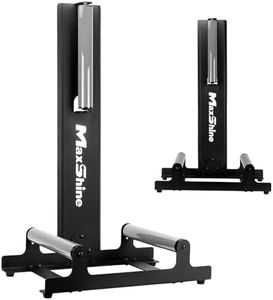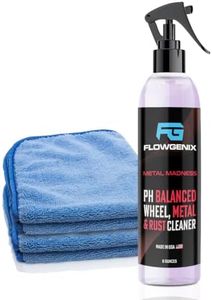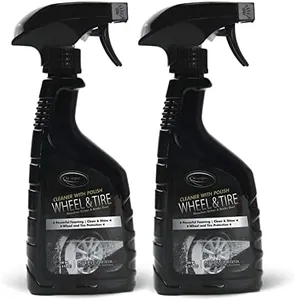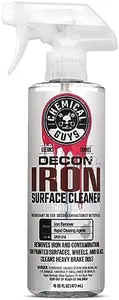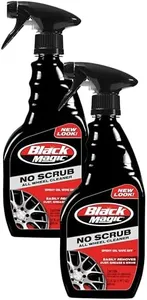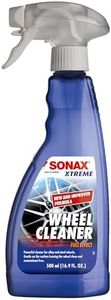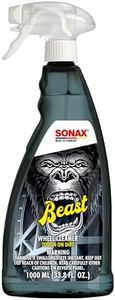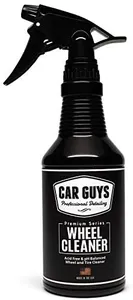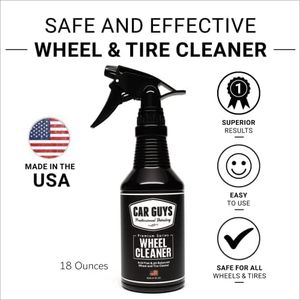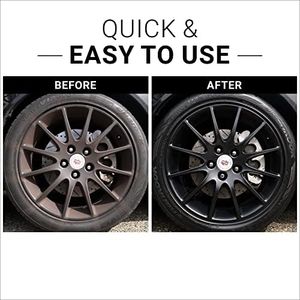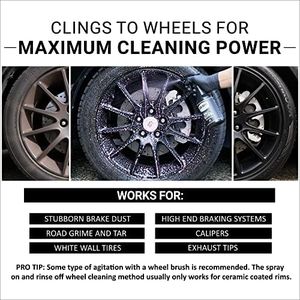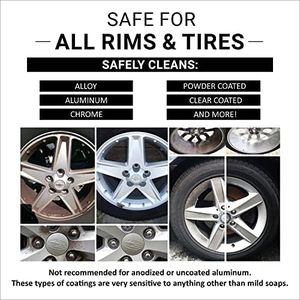10 Best Alloy Wheel Cleaners 2025 in the United States
Winner
Adam's Polishes Wheel & Tire Cleaner 16oz - Professional All in One Car Wash Wheel Well Cleaning Spray for Car Detailing | Safe On Most Rim Finishes
Adam's Polishes Wheel & Tire Cleaner is designed to tackle tough dirt, brake dust, and browning on wheels and tires. Its high cleaning power effectively restores tires to their original color and leaves wheels looking new. The product is notably safe on a variety of finishes including clear-coated, powder-coated, chrome, alloy, and painted wheels, making it versatile for different types of rims.
Most important from
8461 reviews
Chemical Guys CLD_203_16 Signature Series Wheel Cleaner, Formated For All Gloss Finishes, Safe for Cars, Trucks, SUVs, Motorcycles, RVs & More 16 fl oz
The Chemical Guys CLD_203_16 Signature Series Wheel Cleaner stands out for its powerful cleaning capabilities. It's formulated with natural citrus extracts, making it tough on stubborn brake dust and grime while being gentle on most wheel finishes. This means it's a good choice for users looking to maintain their car's appearance without risking damage to their wheels.
Most important from
7156 reviews
Top 10 Best Alloy Wheel Cleaners 2025 in the United States
Winner
9.7 score
Adam's Polishes Wheel & Tire Cleaner 16oz - Professional All in One Car Wash Wheel Well Cleaning Spray for Car Detailing | Safe On Most Rim Finishes
Adam's Polishes Wheel & Tire Cleaner 16oz - Professional All in One Car Wash Wheel Well Cleaning Spray for Car Detailing | Safe On Most Rim Finishes
Chosen by 1213 this week
Chemical Guys CLD_203_16 Signature Series Wheel Cleaner, Formated For All Gloss Finishes, Safe for Cars, Trucks, SUVs, Motorcycles, RVs & More 16 fl oz
Chemical Guys CLD_203_16 Signature Series Wheel Cleaner, Formated For All Gloss Finishes, Safe for Cars, Trucks, SUVs, Motorcycles, RVs & More 16 fl oz
Chemical Guys CLD_998_1602 Sprayable Diablo Wheel Cleaner (Safe on All Wheel & Rim Finishes), Great for Cars, Trucks, SUVs, Motorcycles, RVs & More, 16 oz (2 Pack)
Chemical Guys CLD_998_1602 Sprayable Diablo Wheel Cleaner (Safe on All Wheel & Rim Finishes), Great for Cars, Trucks, SUVs, Motorcycles, RVs & More, 16 oz (2 Pack)
Chemical Guys CLD_997_16 Diablo Gel Oxygen Infused Foam Wheel And Rim Cleaner, Concentrated (Safe on All Wheel & Rim Finishes), for Cars, Trucks, SUVs, Motorcycles, RVs & More 16 fl oz
Chemical Guys CLD_997_16 Diablo Gel Oxygen Infused Foam Wheel And Rim Cleaner, Concentrated (Safe on All Wheel & Rim Finishes), for Cars, Trucks, SUVs, Motorcycles, RVs & More 16 fl oz
Chemical Guys SPI21516 Decon Pro Iron Remover and Wheel Cleaner, For Wheels, Brakes, Calipers, Tires, Exterior, 16 fl oz
Chemical Guys SPI21516 Decon Pro Iron Remover and Wheel Cleaner, For Wheels, Brakes, Calipers, Tires, Exterior, 16 fl oz
Our technology thoroughly searches through the online shopping world, reviewing hundreds of sites. We then process and analyze this information, updating in real-time to bring you the latest top-rated products. This way, you always get the best and most current options available.

